How to make Semolina Pasta Dough from scratch! The recipe will show you how to make Italian semolina pasta with just 2 ingredients. Super quick and easy to make and completely egg-free. Use this dough to make many traditional shapes like Cavatelli, Gnocchetti Sardi and Orecchiette!
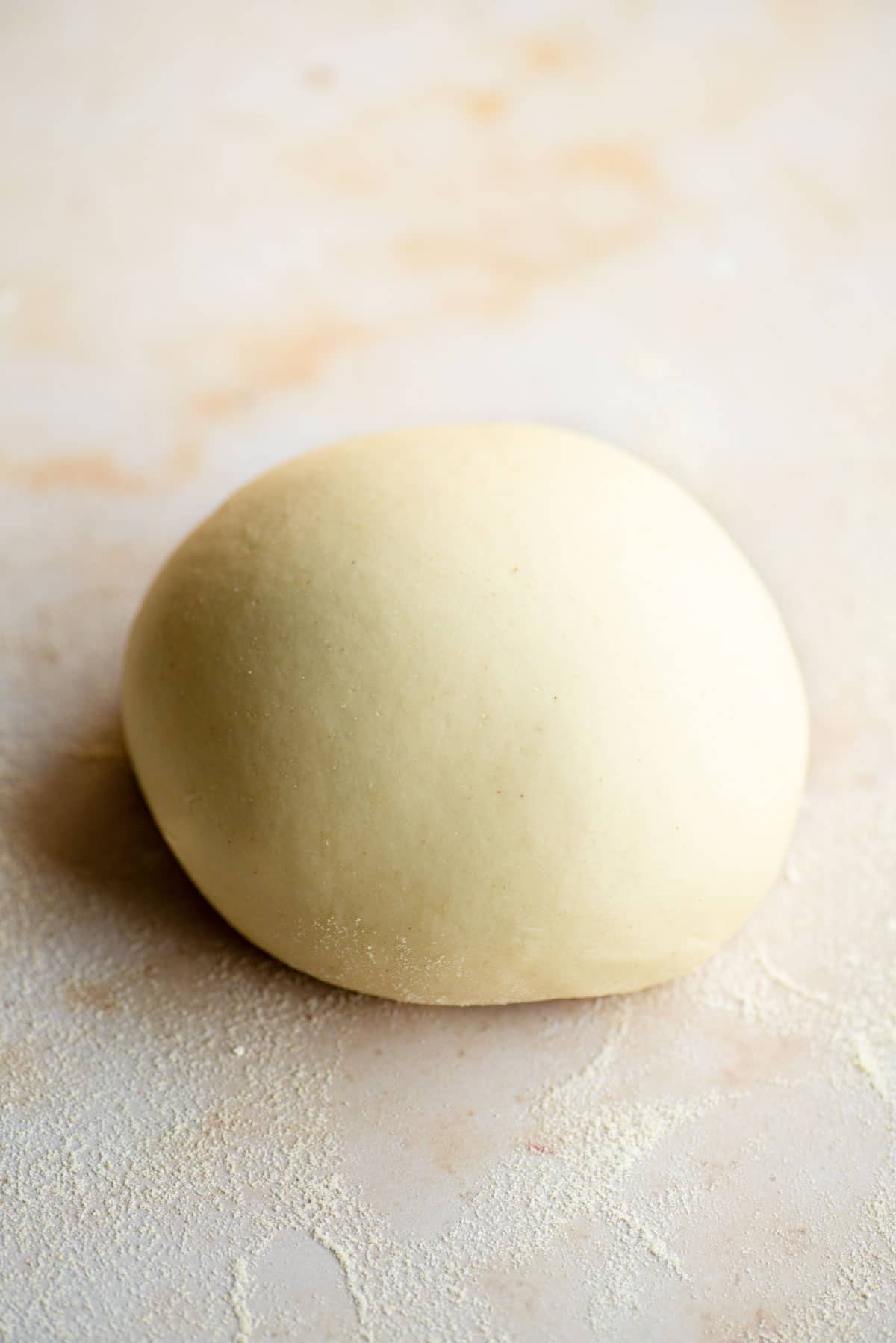
When it comes to homemade pasta dough, semolina is hardly mentioned yet it's one of the easiest doughs to work with.
It's made using a finely ground semolina called Semola Rimacinata which is really easy to find online or in Italian food stores.
It's made with hard durum wheat so the pasta itself is tougher and not as soft as regular pasta dough making it extremely easy to form into shapes like Cavatelli, Gnocchetti Sardi, Orrechiette, Spaghetti alla Chitarra and so many more.
This traditional Italian dough is used to make 100's of different shapes so you can have fun and experiment then serve them with your favourite sauce.
Jump to:
Ingredients - what you need
See the photo below that shows you everything you need to make this recipe plus some important tips on ingredients!
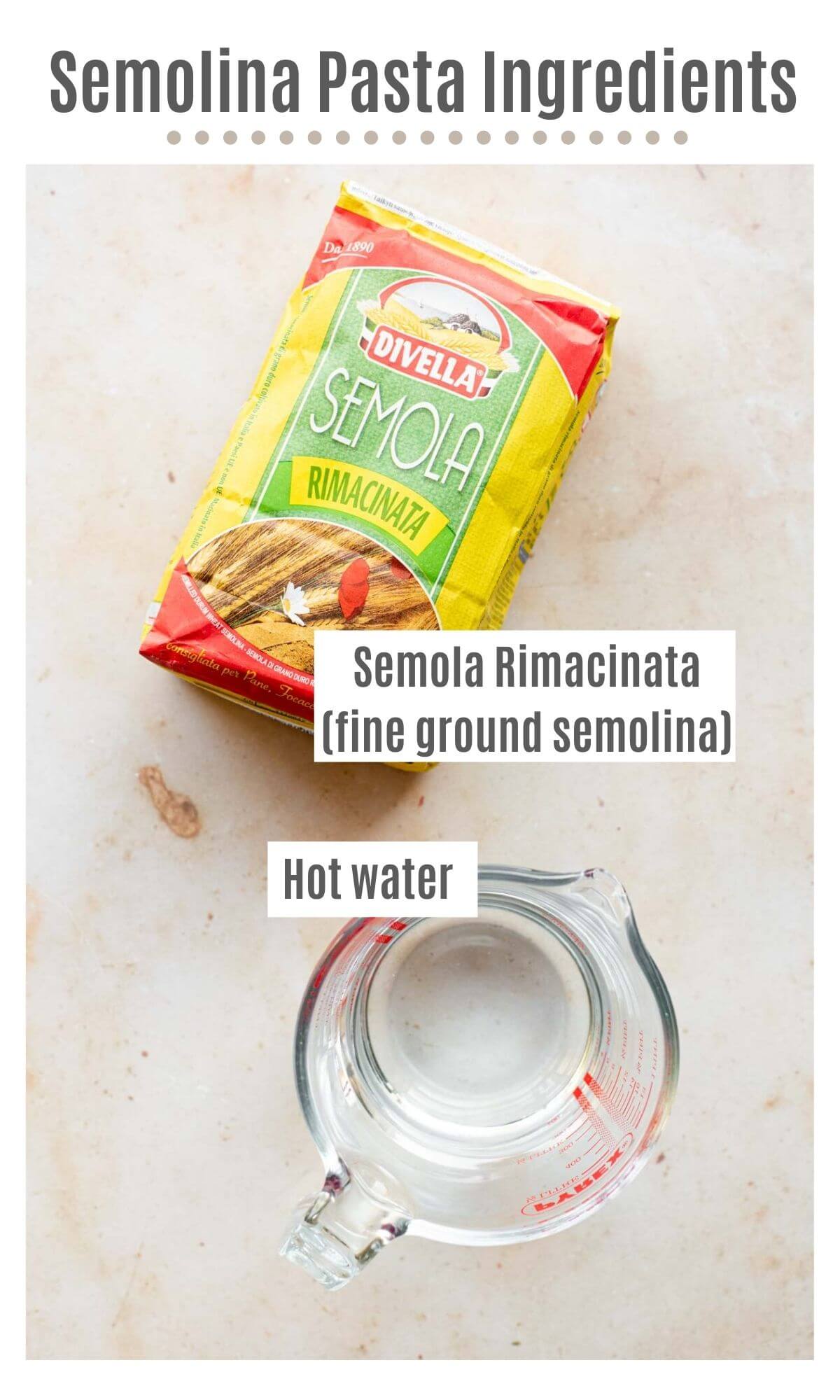
- Semola Rimacinata (300g/2 cups) - semola rimacinata is finely ground semolina made from hard durm wheat. The sturdier grain makes a sturdier dough than 00 flour and has much more of a bite to it once cooked than regular pastas.
- Hot water (150ml or ⅔ cup) - although you can use cold water, hot or warm water makes the dough easier to knead.
Never Miss A Recipe!
Get all the latest recipes and Italian content sent straight to your inbox (plus our top 10 Italian cooking secrets!)
Step by step photos and recipe instructions
Prepare the flour - Tip the semola (semolina) onto a clean work surface or into a large mixing bowl and make a well in the middle (photo 1).
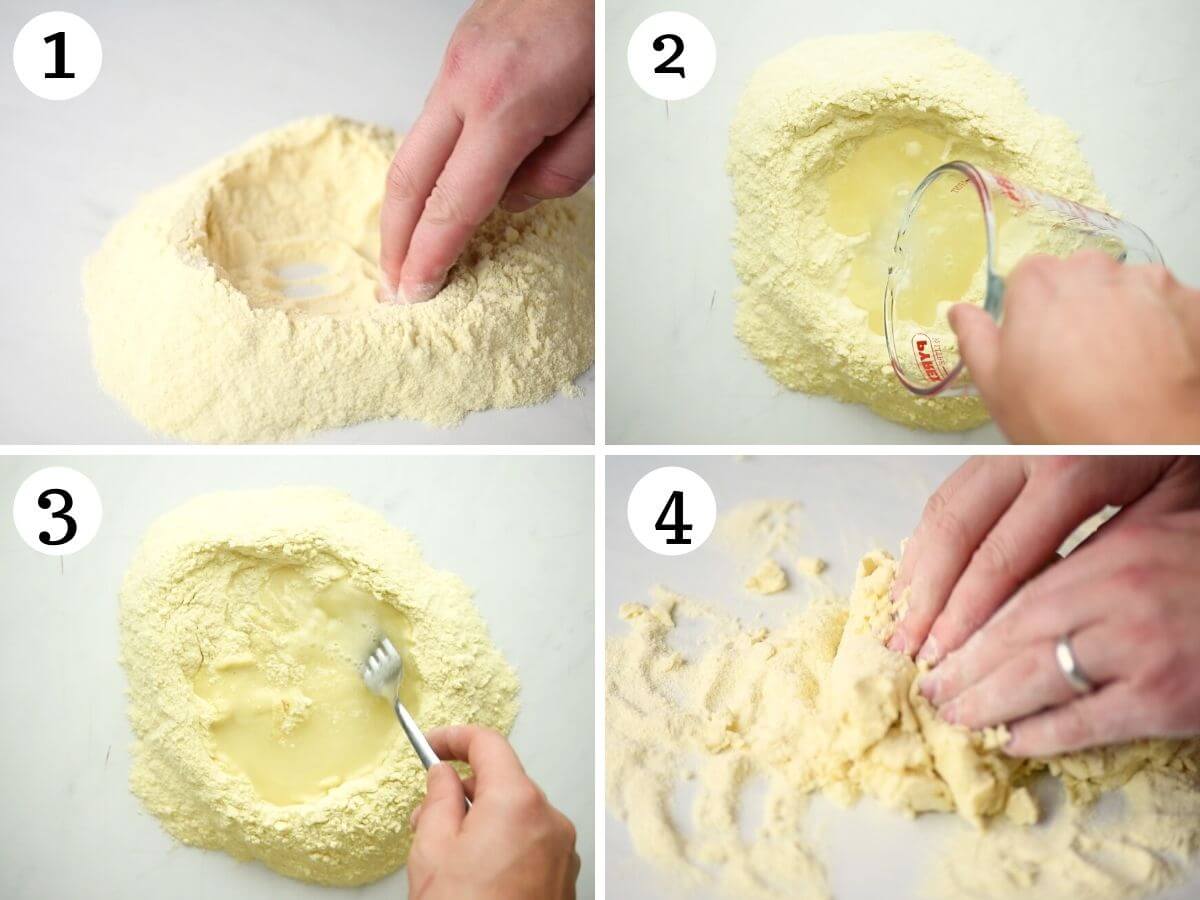
Add the water - Pour the water into the well then slowly incorporate the semolina into the water using a fork (photos 2 & 3).
Knead the dough - Once a rough dough has formed, use your hands to knead the dough until smooth and elastic (photos 4-7).
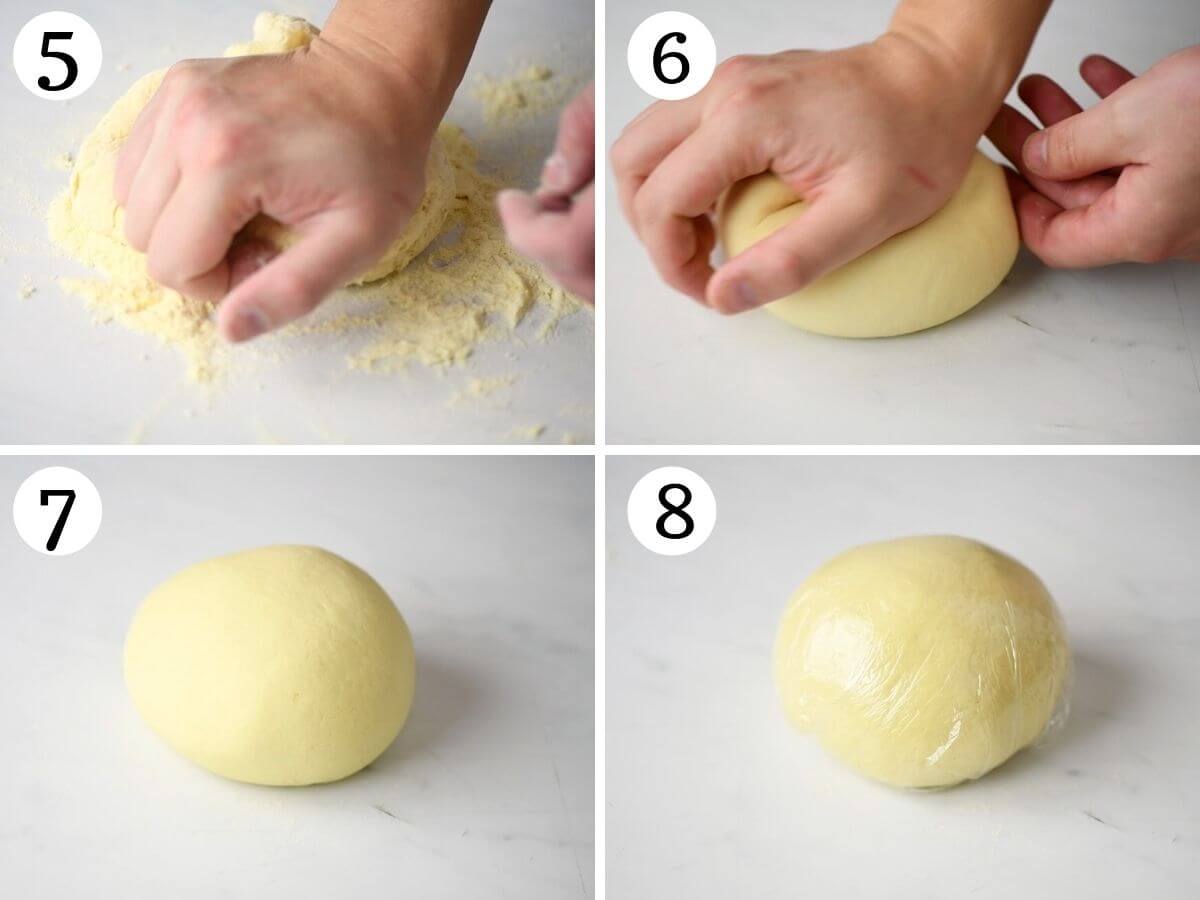
Let it rest - Once kneaded, wrap in plastic wrap (cling film) and let the dough rest for 30 minutes before shaping (photo 8).
Follow our tutorials for Homemade Cavatelli Pasta or Gnocchetti Sardi (two very easy and simple shapes to make with this pasta dough).
Recipe tips and FAQs
- Measuring the semolina - whenever possible use a kitchen scale to weigh flour for pasta making, it will ensure that you get perfect results every time.
- Measuring with cups! - If using cups, you must spoon the semolina into the cups then level it off with a knife. If you use the scooping method you will measure too much flour and the recipe won't work.
For best results, you need to use very finely ground semolina also known as Semola Rimacinata or Semola di Gran Duro Rimacinata. It's the texture of a very fine powder.
Yes, you can make the dough 1-3 days in advance but keep it stored in the fridge. Remove it from the fridge 30 minutes to 1 hour before using, when it's cold it's too difficult to shape.
Yes, you can freeze the dough but because it's so quick to make I recommend always making it fresh then freeze it once shaped.
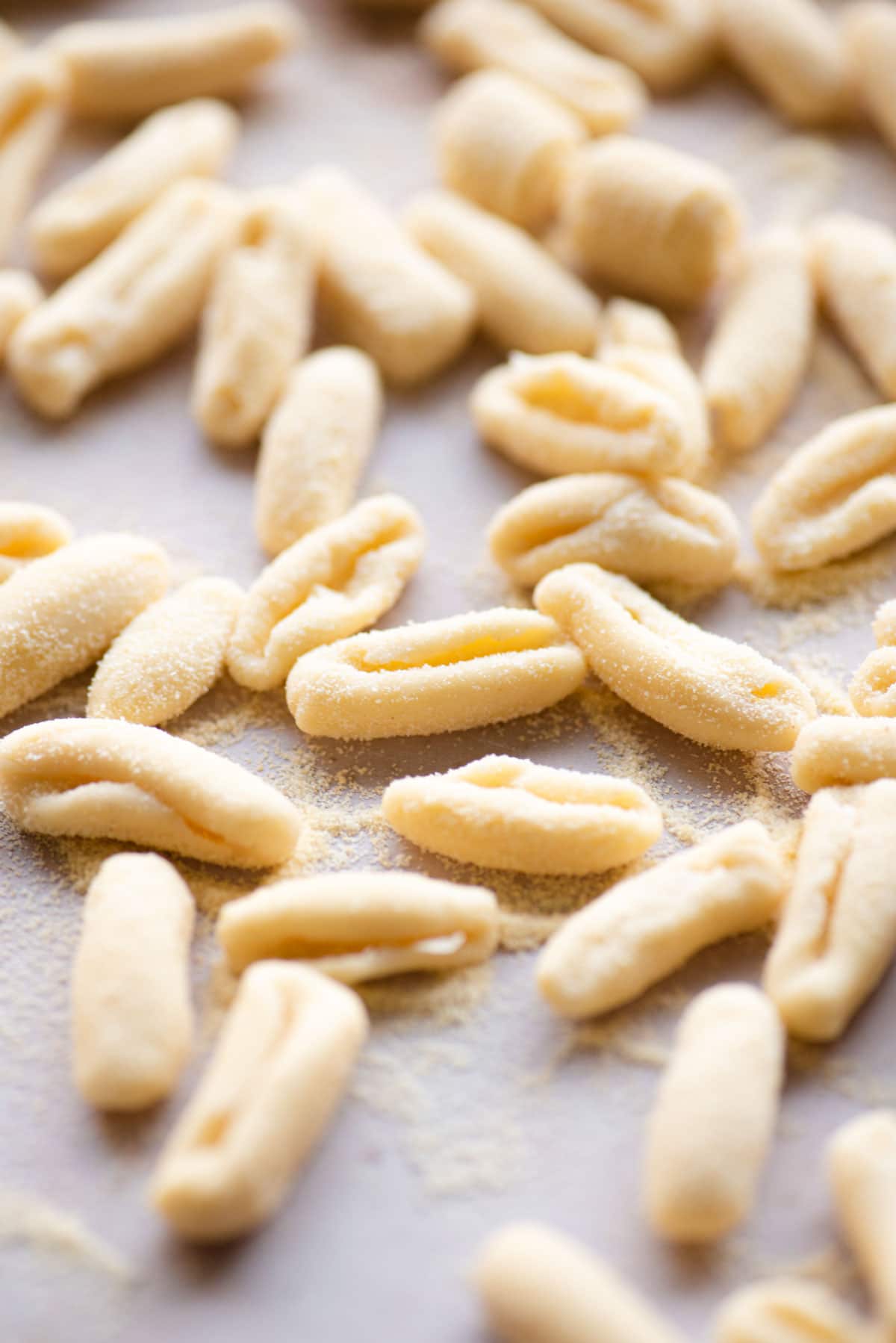
Shapes you can make and sauces to serve it with
- Homemade cavatelli (a really easy shape to make with semolina pasta)
- Gnocchetti Sardi (similar to cavatelli but with groves, very easy).
- Cavatelli and Broccoli (a delicious sauce and classic way to serve cavatelli)
- Gorgonzola cream sauce (a super quick cheesy sauce)
- Pomodoro sauce (tomato and basil)
- Italian Beef Ragu (rich and comforting)
If you’ve tried this Semolina Pasta recipe or any other recipe on the blog then don’t forget to rate the recipe and let me know how you got on in the comments below, I love hearing from you! You can also FOLLOW US on FACEBOOK, INSTAGRAM and PINTEREST or sign up to our NEWSLETTER to see more of our delicious food
☆Full Recipe
Semolina Pasta Recipe
Ingredients
- 300 g Semola Rimacinata (extra fine semolina) 2 cups* see notes
- 150 ml hot water ⅔ cup
Equipment
- Plastic wrap (cling film)
Instructions
- Tip the semola onto a clean work surface or use a large mixing bowl and make a wide well in the middle. Pour in the hot water and slowly start to incorporate the semola with a fork.300 g Semola Rimacinata, 150 ml hot water
- When the dough starts to come together, use your hands to knead the dough for 10 minutes until smooth and elastic. If you find the dough is tough to knead, wrap it in plastic wrap and let it rest for 5-10 minutes then continue to knead it. You’ll notice that the dough is much softer and easier to work with after resting.
- Once the dough has been kneaded, wrap it in plastic wrap and let it rest for 30 minutes at room temperature.
- Your dough is now ready to shape. See our tutorials on how to make cavatelli pasta or gnocchetti sardi (two very easy and simple shapes) or form into any shape you like.
- Once formed into small shapes, cook in plenty of salted boiling water for around 2-3 minutes and serve with your favourite sauce.
Notes
- *Measuring with cups! - If using cups, you must spoon the semolina into the cups then level it off with a knife. If you use the scooping method you will measure too much flour and the recipe won't work.
- Preparing in advance - you can make this dough 1-3 days in advance and store it in the fridge. Let it sit at room temperature for at least 30 minutes before using.
- Storage and freezing - this dough is great for freezing although I recommend forming the dough into your desired shapes and then freezing. Boil your shapes straight from frozen.
Nutrition
- I always use extra virgin olive oil in all of my recipes unless stated otherwise
- When I use canned or jarred tomatoes of any kind I always use Cirio or Mutti brands for the best results and flavour.
- All vegetables are medium sized unless stated otherwise
- All recipes are tested and developed using a fan (convection) oven
- Find out more about how nutrition is calculated.
- Check out our must have Italian Pantry Staples.
- You can also find all our Essential Kitchen Tools for Italian Cooking.

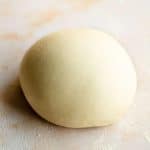
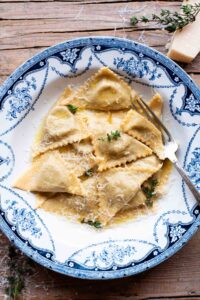
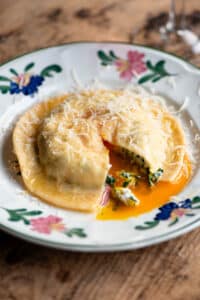
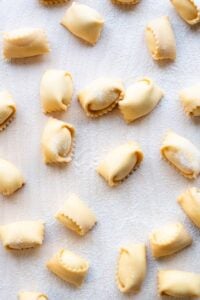
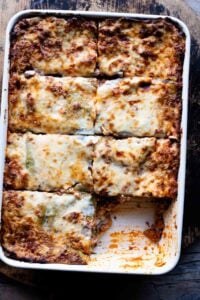
Cara
Could this be used for ravioli?
Emily
Hi Cara, I don't recommend using it to make ravioli as the pasta is denser than egg pasta dough.
Daisy
If I wanted to leave my cavatelli to dry for 24 hours and then boil could I? What is the best way to store it without freezing it.
Thanks,
Daisy
Emily
Yes, you can air dry them on a clean kitchen towel, once dried you can store them in a container until you're ready to use them.
Thomas
I recently read that rimacinata is for leavened things and normal semolina is for pasta. The latter, semola di grano duro, gives a coarse surface that allows the sauce to "marry" with the pasta better. Any thoughts?
Emily
Hi Thomas, in Italy the flour that's used for pasta is Semola Rimacinata di Grano Duro and it's often used for breads too. I haven't tried using a coarser type of semolina but let me know if you do!